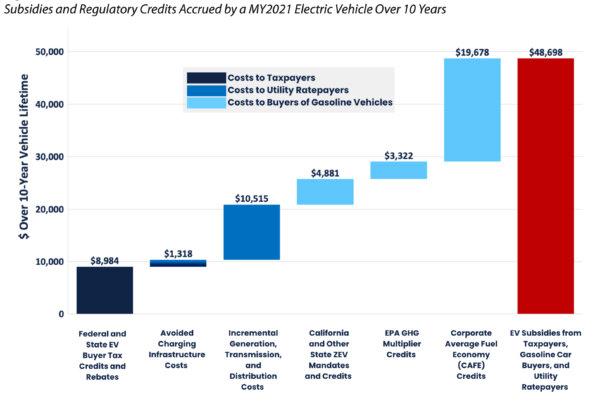Regarding transportation infrastructure, EV owners also do not pay the cost of things like road construction and maintenance, much of which is currently paid by gas taxes. Failing to take any of these costs into account amounts to an enormous distortion by government of market prices in the automotive industry.
“EV advocates claim that the cost of electricity for EV owners is equal to $1.21 per gallon of gasoline,” the report states. “Adding the costs of the subsidies to the true cost of fueling an EV would equate to an EV owner paying $17.33 per gallon of gasoline.”
'Hybrids Are the Answer'
Many EV owners feel that the added cost is worth it because they are fighting global warming and EVs do not emit CO2 while they are on the road. However, hybrid vehicles may be a better option, when CO2 emissions from mining and refining of battery materials, as well as additional electricity infrastructure, are taken into account.“Federal policy is pushing EVs over hybrid vehicles, even though hybrids offer a far more efficient way to improve fuel economy and reduce emissions,” the report states. “They use a much smaller battery, offer excellent driving range and performance, and don’t require any upgrade to our electric infrastructure.”
“If we were concerned about emissions, then hybrids are the answer,” Mr. Bennett said. “But the ideology against fossil fuels is such that it’s almost more about the fuel than the emissions.”
 The "socialized costs" of subsidies and credits that are not included in the sticker price of EVs (Brent Bennett, Jason Isaac, Texas Public Policy Report).
The "socialized costs" of subsidies and credits that are not included in the sticker price of EVs (Brent Bennett, Jason Isaac, Texas Public Policy Report).
You need to be a member of Citizens' Task Force on Wind Power - Maine to add comments!
Join Citizens' Task Force on Wind Power - Maine